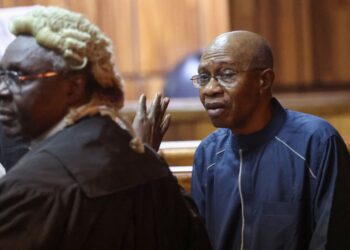The Postmortem Sub-Committee of the Federal Account Allocation Committee has recommended that the Federal Government refund the N228bn loan sourced from the non-oil excess revenue account to fund the 2023 general elections. This revelation emerged from a comprehensive report signed by the sub-committee Chairman, Kabir Mashi, on December 14, 2023.
The report meticulously analyzed the inflow into and payments from the non-oil excess revenue account, covering the period from January 2020 to October 2023. During this timeframe, a total of N1tn was distributed to the three tiers of government.
The report divulged that the total inflow into the Non-oil Excess Account for the period amounted to N2.6tn.
In September 2023, concerns were raised during a FAAC Plenary meeting regarding substantial deductions from the Non-Oil Excess Revenue Account, prompting an intensive investigation by the sub-committee. The findings revealed that the loan taken for the 2023 general elections constituted approximately 26 per cent of the total deductions between January 2020 and October 2023.
Additional deductions, including the refund of gas flared penalties to the Nigerian Midstream and Downstream Petroleum Regulatory Authority, were also identified. The sub-committee recommended the refund of the total deductions, totaling N864.16bn, for other purposes back to the account.
The Independent National Electoral Commission (INEC) had proposed a budget of N305bn for the conduct of the 2023 general election, with an additional N50bn allocated for its annual budget—an increment of N10bn compared to the 2022 budget.
The backdrop of Nigeria’s escalating debt profile adds a layer of complexity to this financial scenario. Data from the Debt Management Office indicates that the Federal Government borrowed N7.04tn locally in 2023. Despite the rising debt, the debt-to-GDP ratio currently stands at 23.27 per cent, well below the threshold of 77 per cent that could potentially impede economic growth. The recommendation for the refund underscores the ongoing challenges in managing fiscal resources and addressing concerns about the allocation of funds for critical national events.











